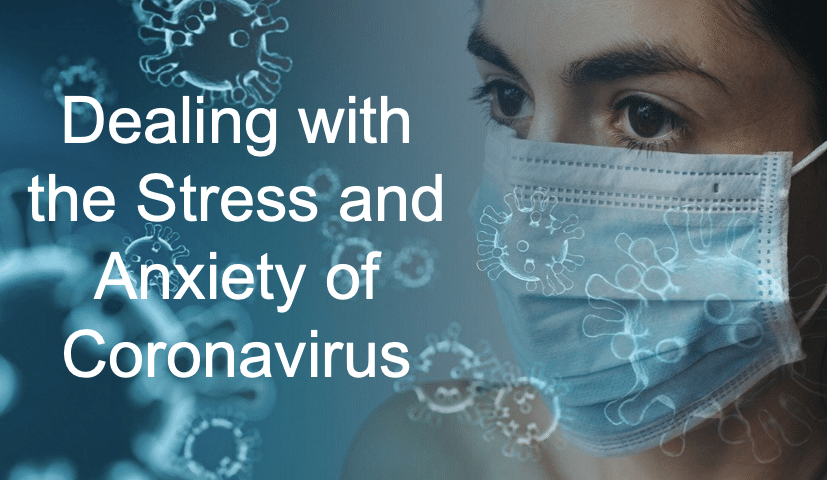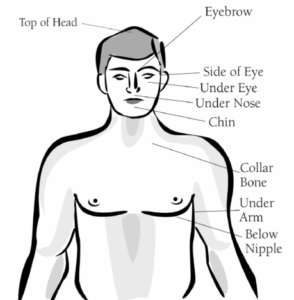These are truly uncertain and unprecedented times. Our world has changed and the way we live has changed. It would be impossible to not feel unsure, anxious and afraid. I know I’ve had my moments to say the least.
I wanted to share some things that have helped me deal with the stress and anxiety that comes with COVID-19 and the multiplier effect it has not just on our physical or financial health but also our mental health and wellbeing. I hope some of these ideas help you also.
1. It’s okay to be feeling the way you’re feeling!
- Acknowledge and validate how you’re feeling.
- Pushing your feelings away or feeling bad for feeling bad makes them stronger.
- A good listener acknowledges and validates what they hear from the speaker. Do the same – I like to think of our emotions as messengers and when we listen to them they tend to reduce in intensity, frequency and duration.
2. The Question is how long do you want to feel that way?
In other words there are things you can do that can help you calm and relax a little more. There are things you can do that can make you feel a little better. Focus on the things you can control because there is way too much we can’t control in this Coronavirus climate. We need to be cautious that our anxiety isn’t playing into a psychological phenomena.
When you’re surrounded by people who are scared, frightened, and desperate there is a tendency to be negatively affected with those same thoughts and feelings. This is known as EMOTIONAL CONTAGION.
Just like the spread of a virus, we can ‘catch feelings’. Emotions, both positive and negative, actually spread like viruses, whether or not we intend for them to.
Here are 2 practical strategies to help manage stress and anxiety.
3. Try 4-7-8 Breathing
Breathing can be a powerful tool to manage anxiety and any overwhelming emotions. A simple place to start is with 4-7-8, a five-step breathing exercise that is easy and effective. The exercise can be done anytime, anywhere, and can help relieve stress, lower blood pressure, and induce sleep. Here’s how it works:
- Start by putting the tip of your tongue to the top of your mouth just behind your two front teeth.
- Breathe in through your nose for four seconds.
- Hold your breath for a count of seven seconds.
- Breathe out through your mouth for a count of eight seconds. Try to make a “whooshing” sound as you do this.
- Start again immediately. Breathe in for a count of four and continue through the cycle 4-5 times before returning to your normal breath for the most benefit.
4. Tapping
This technique I want to share with you is tapping. Check out eftdownunder.com where my good friend Steve Wells along with David Lake have lots of resources on tapping. There are many ways to do this including Steve’s intention tapping. In the video on this page I’ll show you some of the pressure points to do tapping because simply tapping on pressure points continuously creates a relaxation effect and it desensitises emotion. The way I like to think about the tapping is that the emotion moves through you rather than being stuck in your body. So let’s do 3 rounds of tapping.
5. The mind is not always your friend.
“What’s wrong with right now—unless you think about it?” (Bob Adamson) My good friend and mentor Dr David Lake says .
If you pay attention you’ll notice that your thinking can be unhelpful when it’s fixed and stuck rather than open and adaptable. I can often find myself thinking thoughts that are an exaggeration of the reality or perhaps catastrophizing.
David say’s, There is a ‘yes’ and a ‘no’ in everything. A mixture of good and bad, especially in a crisis. Things are neither black nor white. Avoid that kind of thinking where it seems you must ‘vote’! You don’t need to (it’s always both things, in balance).
Part of me is really worried and part of me isn’t; this is a balance you can change—by having a plan.
I also like his comments about…allowing.
Allowing (external) things to be difficult because often external circumstances are out of our control— focus on doing what you can, without excess upset. Don’t struggle with the facts. It is what it is. Ask questions to help you focus on what you can do.
Can I take any common-sense measures?
What’s one small thing I can do, that can make a difference (fill in the blank) today.
Keep on doing the life-affirming things you have decided on (even if today is the only thing you can be sure of).
6. Psychological Impacts of Quarantine
It’s SUPER IMPORTANT to maintain strong social connections during isolation.
We need to be more proactive and reach out to people … and in doing so, it’s likely to help others who might not want to bother you, or who might have mental health problems of their own.
Maintaining good physical health during quarantine or isolation is also key to keeping mentally well.
It’s easy when you’re in the middle of a crisis to let your standard routines or health habits go downhill.
We know physical and mental health are quite closely linked, and so this is a time you probably need to pay additional attention to unhelpful behaviours.
A great idea to connect with friends is to organise a virtual “happy hour”. Log on together and have a glass of wine or coffee virtually.
7. Some tips to looking after your mental health in home isolation:
- Remind yourself that this is a temporary period of isolation
- Remember that your effort is helping others in the community
- Stay connected with friends, family and colleagues via email, social media, or phone
- Engage in healthy activities that you enjoy and find relaxing
- Keep regular sleep routines and eat healthy foods
- Try to maintain physical activity
- For those working from home, try to maintain a healthy balance by allocating specific work hours, and taking regular breaks
- Avoid news and social media if you find it distressing
Tip 7 sourced from Beyoneblue.


